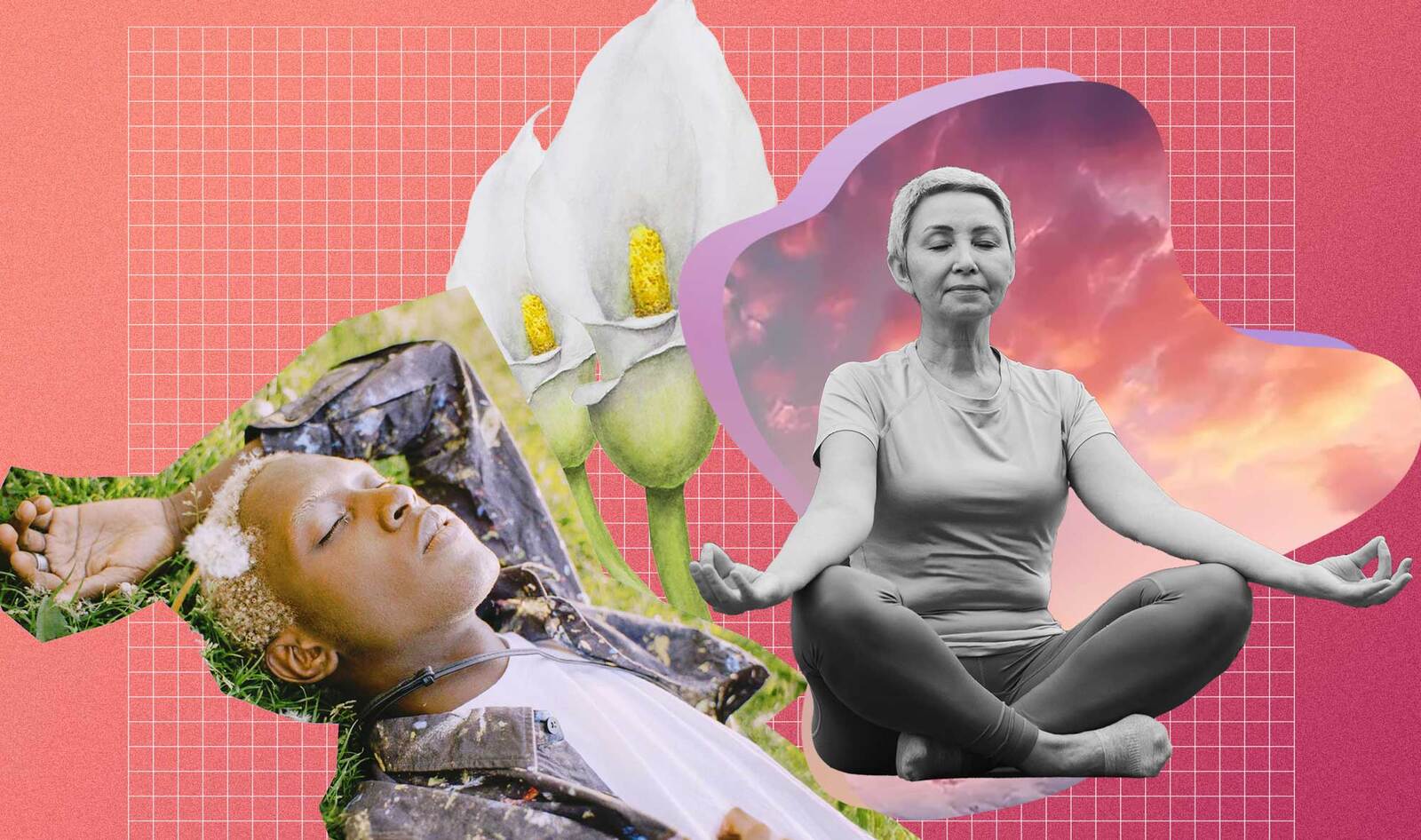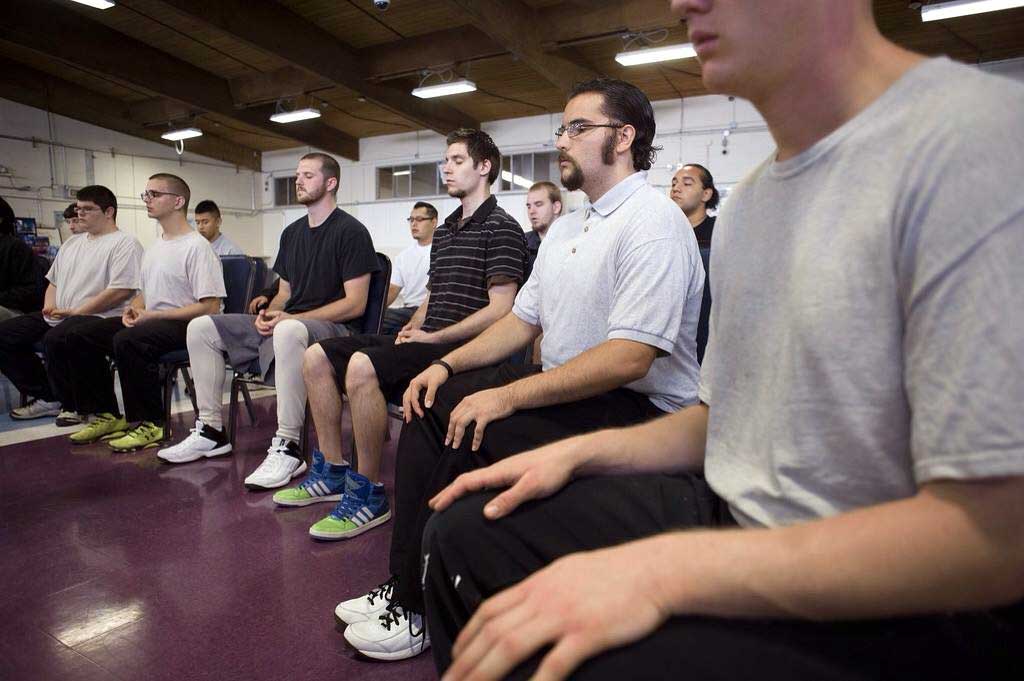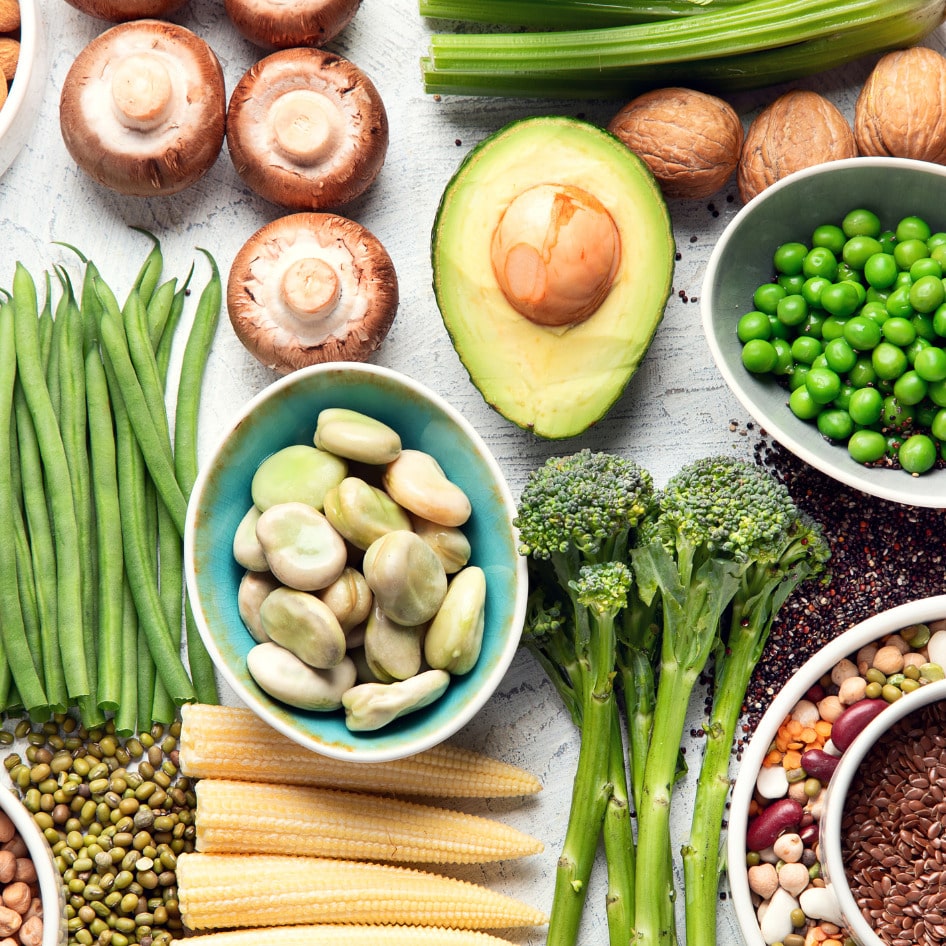“I have so much to accomplish today that I must meditate for two hours instead of one.” These words from arguably the most inspirational vegetarian in history, Mahatma Gandhi, offer a clue to the power of meditation. While there are a multitude of ways to reach a relaxed state, few are backed by the millennia-long history, global popularity, and wealth of scientific evidence that meditation enjoys.
Though the beginnings of this age-old art are unknown, some archaeologists date the practice back to the fifth or sixth century BC. Originally having religious ties, meditation has now exploded in popularity among the spiritual as well as the secular. The rapidly growing worldwide community of meditators is proof-positive that the ancient practice has real relevance in today’s hectic world, as recent studies show that meditation is not simply structured tune-out time, but provides actual relief from depression, chronic pain, and anxiety, while promoting better relationships and increased overall happiness.
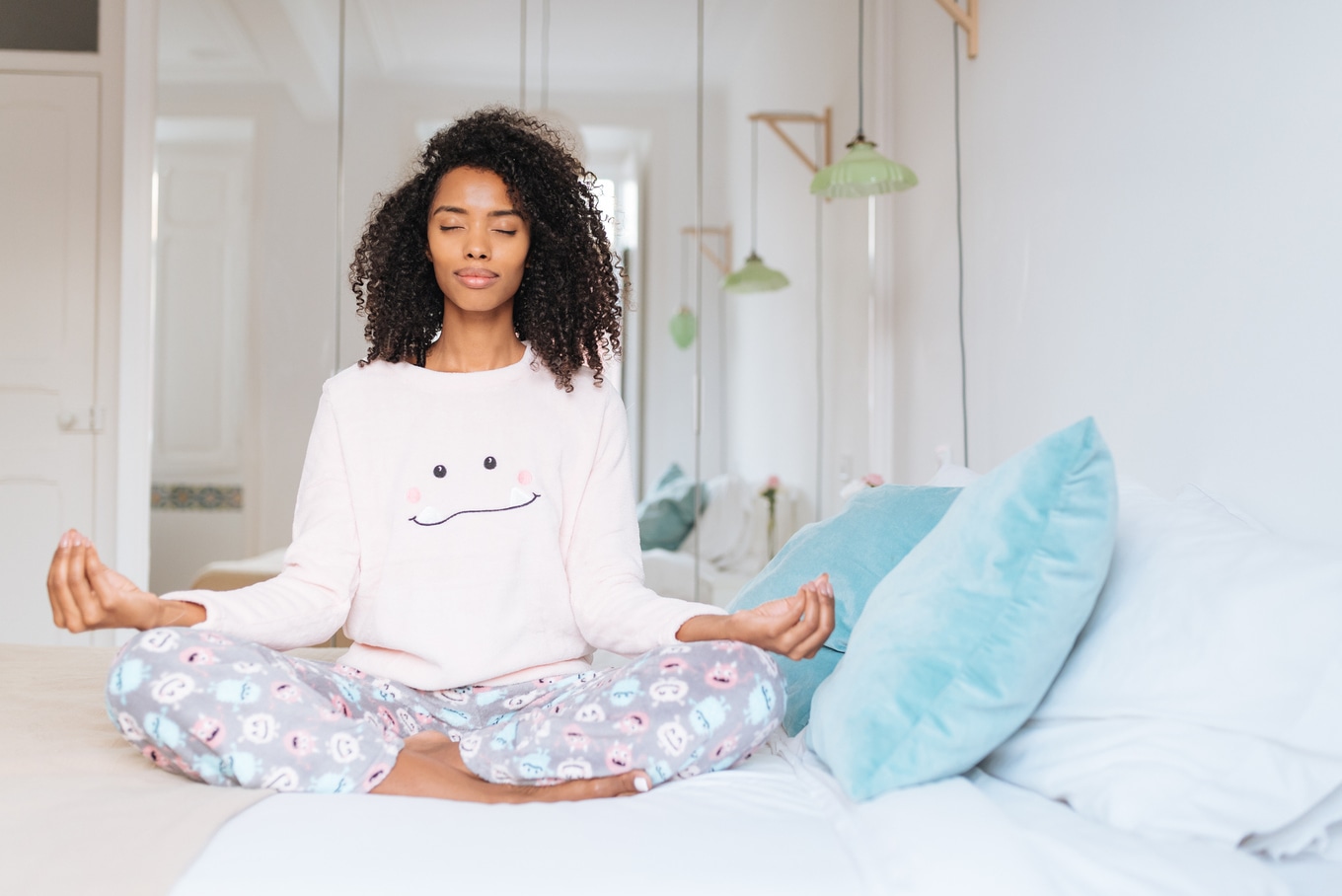 Getty
Getty
And yet many of us are intimidated by the idea of practicing meditation. Just thinking about it can trigger a stream of questions: Do I need a special cushion? Should I make an altar? What do I do if my cat jumps into my lap or I have an itch? As it turns out, all you need to meditate is your breath and a moment.
What are the benefits of meditation?
Meditation doesn’t have to be complicated. Michael Petersen, a vegan yoga and meditation teacher at the Massachusetts retreat destination Kripalu Center for Yoga & Health, explains that meditation is easy when we boil it down to the basics. “There’s no rule that says meditation has to be an hour long,” he explains. “You don’t have to be sitting upright with your legs crossed. The definition simply says to focus your mind on one point over and over and over again.”
In fact, spending only a few minutes a day in this quieted state can deliver transformational benefits: fending off stress, calming our inner voices, and enabling better decision-making. Those who meditate regularly report experiencing a significantly increased sense of happiness, healthier relationships, ease in the face of fears, increased compassion, and improved resiliency.
And it doesn’t only help those of us grappling with busy work schedules. The Prison Mindfulness Institute, for example, provides prisoners, prison staff, and prison volunteers with effective, evidence-based tools for rehabilitation and personal development, primarily focusing on mindfulness-based interventions. The mindfulness training these individuals receive has been proven to help those suffering from attention-deficits, poor impulse control, and depression—challenges commonly experienced by people who are incarcerated.
No matter who is practicing it, the universal throughline is focus: by learning to let go of the seemingly unending monologue inside our heads or detaching from external troubles and distractions— even for just a few minutes—we can be much better equipped to deal with the circumstances around us, whatever they may be.
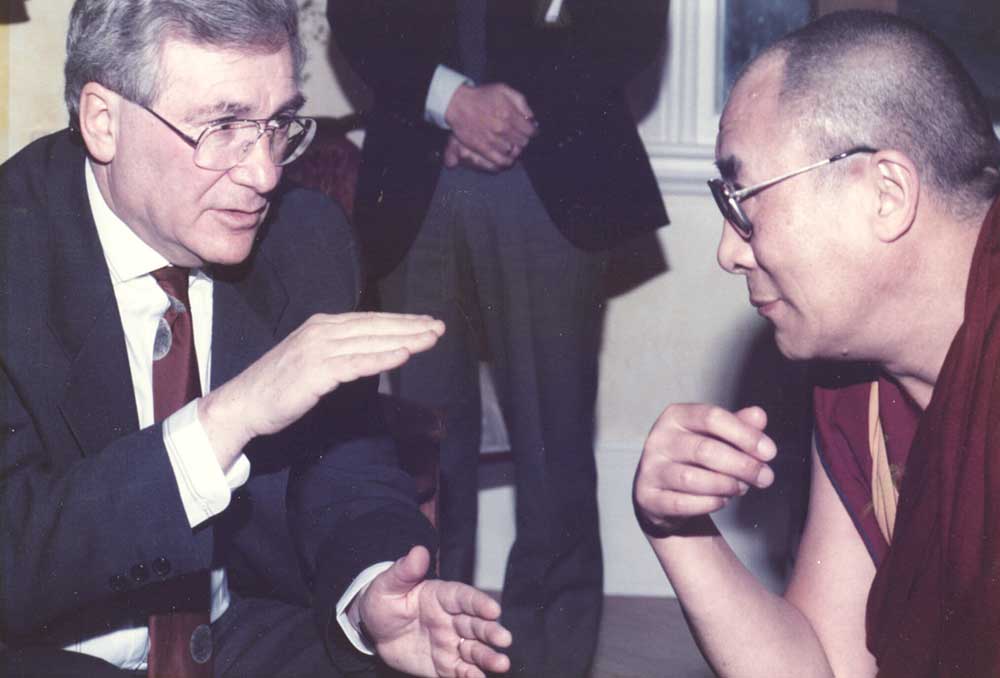 Benson-Henry Institute for Mind Body Medicine
Benson-Henry Institute for Mind Body Medicine
What evidence supports meditation?
Today’s meditation trend sees practitioners range from teens to mindful millennials to seniors, but it wasn’t always that way. The demystification of meditation in the West can largely be attributed to studies by Harvard Medical Professor Dr. Herbert Benson, whose renowned work in the 1960s and 1970s illustrated that meditation causes a physical response in our bodies, including lowered blood pressure and resting heart rates. More scientific research in recent years has underscored his findings, evidence that a regular meditation practice is the antidote to stress, both physically and emotionally.
Though even newbies are sure to see results following their very first meditation, experts suggest meditating every day to experience the full breadth of benefits. Many choose mornings for their practice, infusing the rest of their day with mindfulness and a positive mental state. Tracye McQuirter, a plant-based nutritionist and author, says, “Just 15 minutes of meditation a day, in the morning, is the best medicine. So before I get on email, before I have phone calls, it sets my mood and intentions.”
What differentiates meditation from simple quiet time is that it’s a formal practice of mindfulness—or, connecting with what is going on in the present moment. It’s when we become preoccupied with the past and future, thinking about disagreements with coworkers and upcoming doctor appointments, that we stress out. Focusing on the right now can calm us down, quiet our negative inner voices, and allow us to make better decisions.
Easier said than done? Maybe not, actually.
How breathing can aid in meditation
Connecting to the here and now doesn’t require any special classes, skills, or even a brand-new cushion to sit on. It’s as basic as turning your attention to something you do every day without even thinking about it: breathing. One of the most widely practiced mindfulness meditations is the simple but powerful awareness of the seemingly basic sensation of air going in and out of your body as you breathe. Lani Muelrath, author of the The Mindful Vegan, explains: “Mindfulness meditation is not a breathing exercise. It’s bringing yourself to what’s happening in the moment—right here, right now—where the anxiety that comes with thoughts about the past and future doesn’t exist.”
New practitioners can start with a simple meditation, choosing a window of time that feels attainable—even if it’s just a few minutes—and setting your focus on one single point. An open-eye meditation may be easiest, in which you sit before a candle, a big tree, or a body of water. Gaze at your object with soft eyes, keep your mouth slightly open, and focus your attention on your breath. When your mind wanders, focus again on your breath. Remember that a wandering mind isn’t indicative of a failed meditation. The objective of your practice is not to eliminate thoughts, but to return to your point of focus each time your mind distracts you.
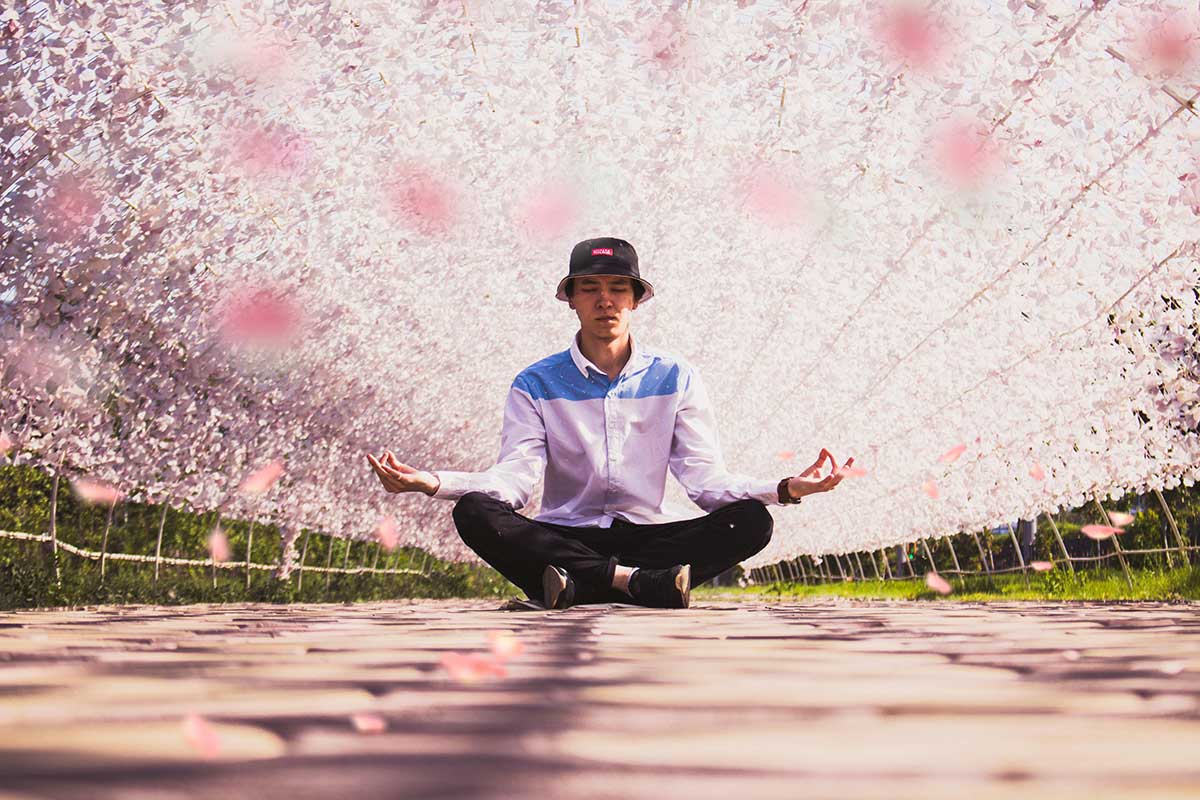 Ruslan Alekso
Ruslan Alekso
Practice makes practice
At work and with family, we sometimes skip the niceties, reacting negatively to our boss’s simple suggestion or neglecting to ask Mom about what’s new. But with what’s called a metta meditation practice, you can infuse your day-to-day life with the kindness toward others that may always be your intention, but could occasionally fall by the wayside. The Buddhist term “metta” means “loving-kindness,” and the practice involves the repetition of a set of phrases that send positive thoughts to a series of individuals, starting with the self. Possibilities include “may you live with ease,” “may you be happy,” or “may you be free from suffering.” There are no hard rules, so send metta to whomever you think could use it.
In addition to making us feel good, metta connects us more to ourselves and to others, which can help us be better advocates and providers. Ariel Nessel, founder of social justice nonprofit The Pollination Project, runs meditation retreats for animal activists at conferences throughout the United States.
“When we start loving ourselves more through [the] practice of metta, we start loving others more, and being more patient with where they are on their path,” says Nessel.
For many, that path is winding and long. So before beginning to practice metta, it’s important to remember that getting into a routine can be tough, and beating ourselves up for not sitting down and practicing every day won’t accomplish anything. The more you get into the habit, the more loving-kindness will find its way into every conversation you have. In fact, a 2008 study showed that practicing this brand of meditation for seven weeks increased participants’ gratitude, contentment, pride, love, joy, hope, interest, amusement, and awe. Surely all of that is worth just a few minutes of your time.
 Mirel Kipioro
Mirel Kipioro
Where can I meditate?
Finding your bliss doesn’t only come with a structured meditation practice, though; peace awaits us everywhere in the great outdoors. If you’re stuck in a state of stress, try spending some time in nature. Just the sounds of the outdoors, such as the wind gently blowing through leaves or the pitter-patter of rainfall, can make us more calm. Even city dwellers can find sanctuary in a public park, beneath a tree, or staring at a window-box garden for a few minutes.
For Petersen—who organizes retreats for those with intellectual and developmental disabilities—meditation, and the act of stopping all the noise, is the key to getting through our days with a sense of ease, even when we’re faced with the most dire of circumstances. This is particularly evident to him when he takes his program participants to a sanctuary for rescued horses, a regular part of his program.
He recalls with fondness someone from his group simply standing with her hands resting on one of the horses in a gentle, quiet, mutual exchange. The two individuals stood in silence as the minutes passed by, sharing a moment of peace, letting everything and everyone else slip away.
“What do you call that?” Petersen smiles before answering his own question. “I call that meditation.”
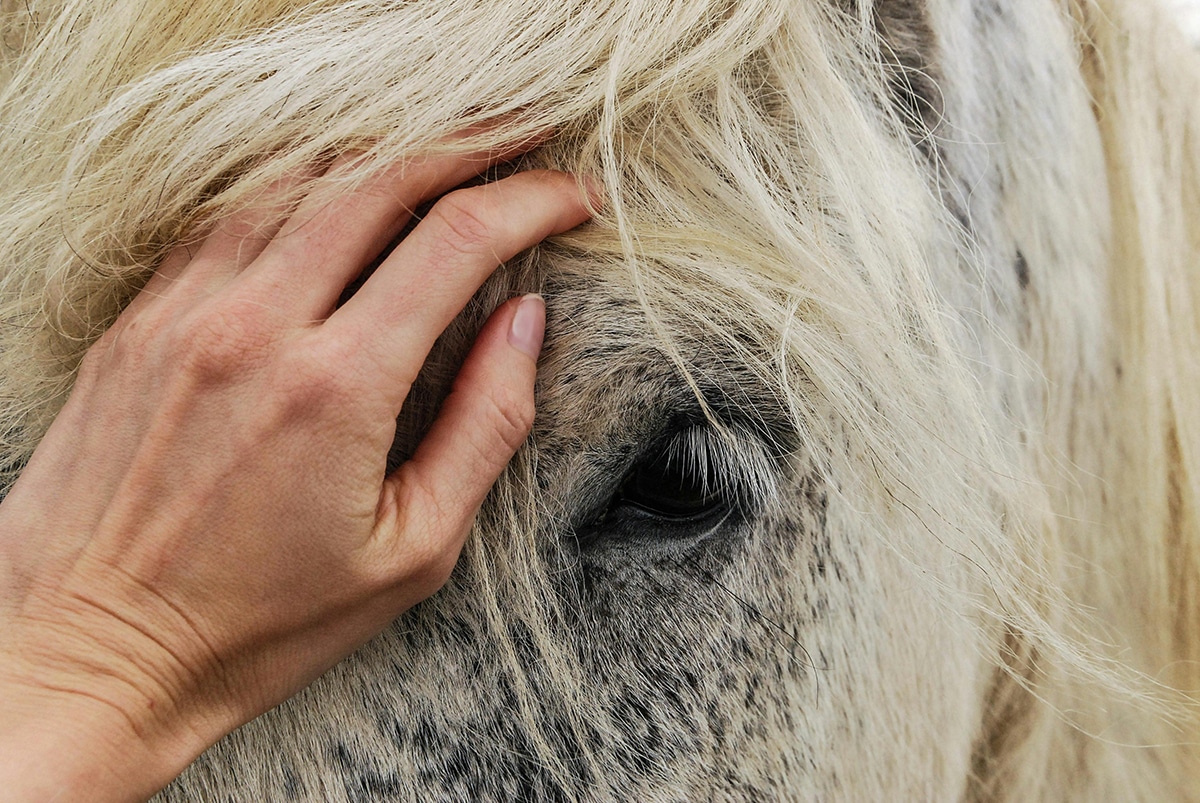 Tiana Diakova
Tiana Diakova
The road to bliss
Though some may fear that meditation is an overwhelming and complex construction impossible to master, the truth is that it is about connecting with the present and finding focus. Not only can meditation offer us an overall improved sense of well-being, but it can make us calmer, kinder, gentler people—allowing us to make wiser decisions, even when we are under significant pressure.
Meditation also makes us better agents of social change, and more productive people all around. Let’s not forget what Gandhi said about having so much to do that we must meditate even more. Finding half an hour in our day may sound like a luxury. Even a few minutes may feel impossible. However, when we step away from social media feeds and Netflix binges, we start to discover precious pockets of time that inherently hold within them the power of true, lasting happiness.
For more, check out:
JUMP TO ... Latest News | Recipes | Guides | Health | Subscribe

